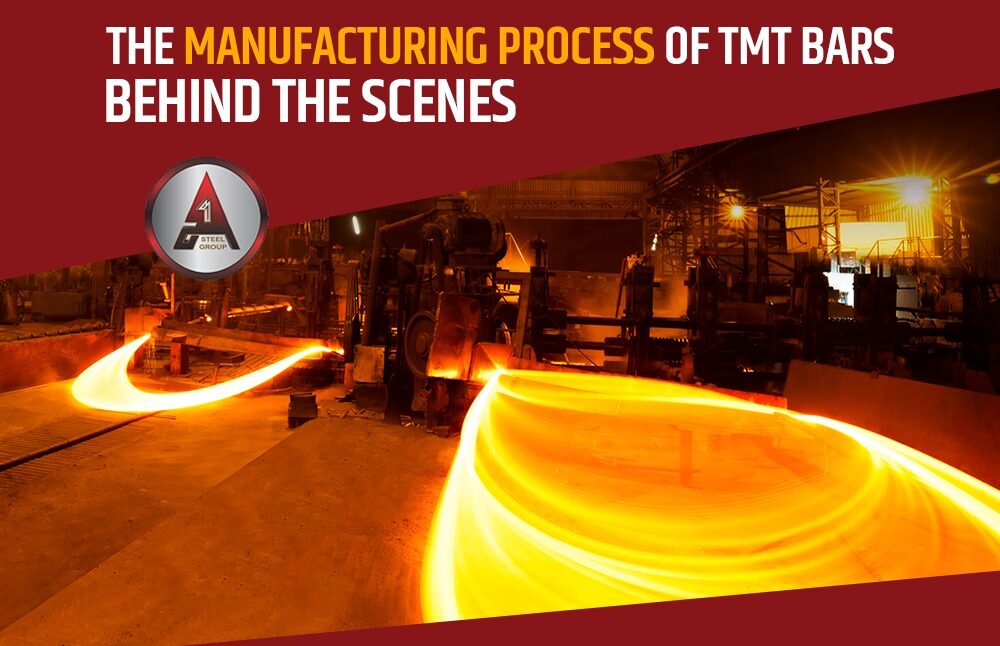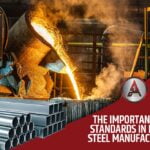In the construction industry, TMT Bars in India play a significant role, providing strength and durability to structures. The Manufacturing Process of TMT Bars is precise and demands high-quality inputs and controlled environments. TMT bar manufacturers in Bangalore are known for their ability to deliver bars that meet stringent quality standards. This article takes a closer look at the journey of these steel bars, from raw materials to finished products, without delving into unnecessary exaggerations.
Raw Material Selection
The process starts with selecting high-quality raw materials. Most steel manufacturers in Bangalore focus on sourcing quality iron ore and coal. These materials undergo initial purification to ensure they meet required standards. This step ensures that the core strength of the bars will not be compromised in later stages.
Melting and Casting
Once the raw materials are purified, they are melted in large furnaces at extremely high temperatures. In many TMT Bars in India production facilities, advanced induction furnaces are used. The molten iron is then cast into billets or ingots, which form the base for the further production of TMT bars. The molten material is cast in a controlled manner to avoid any inconsistency.
Rolling and Quenching
The Manufacturing Process of TMT Bars involves passing these billets through rolling mills, where they are shaped into bars. During this phase, the bars are passed through rollers that reduce their diameter and elongate them. This stage is critical as it helps in ensuring the bars are uniform in size. Immediately after rolling, the bars undergo quenching. In this step, the bars are cooled rapidly using water jets. This process ensures the outer layer becomes hard, while the inner core retains its ductility.
Self-Tempering
After quenching, the bars are subjected to self-tempering. The residual heat from the core heats the outer layer again, which helps maintain the balance between strength and flexibility. This is a vital part of the Manufacturing Process of TMT Bars as it ensures the bars are capable of withstanding both tension and compression, making them suitable for seismic zones.
Testing and Quality Control
In every step of production, stringent quality control measures are implemented. TMT bar manufacturers in Bangalore and steel manufacturers in Bangalore are equipped with advanced labs where the bars are tested for chemical composition, tensile strength, and elongation properties. This ensures that the final product adheres to national and international standards.
Delivery and Distribution
Once the bars pass quality control, they are packaged and prepared for delivery. TMT bars manufacturers in South India have extensive distribution networks, ensuring the product reaches construction sites on time. This efficiency in supply chain management helps the construction industry maintain its timelines and deliver quality projects.
The Future of TMT Bars
With evolving technology, the Manufacturing Process of TMT Bars is also experiencing advancements. Many TMT bar manufacturers in Bangalore are investing in green technologies to make the process more energy-efficient and environmentally friendly. These innovations not only improve the quality of the bars but also contribute to sustainable construction practices.
CONCLUSION:
The production of TMT bars is a systematic process that involves several stages, each essential for ensuring the quality and reliability of the final product. With the growth of infrastructure projects, particularly in South India, the role of TMT Bars in India continues to be pivotal. Companies like One Steel Group, along with TMT bar manufacturers in Bangalore, remain key contributors to this expanding sector.
Click here to know more about “How has TMT Bars Revolutionised the Building Process?”



